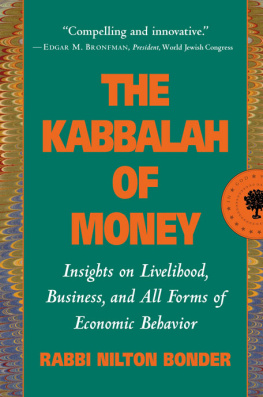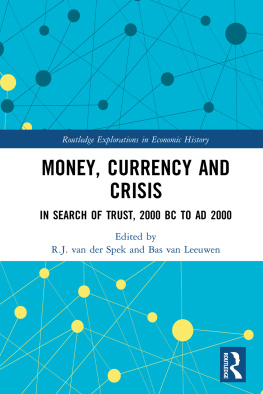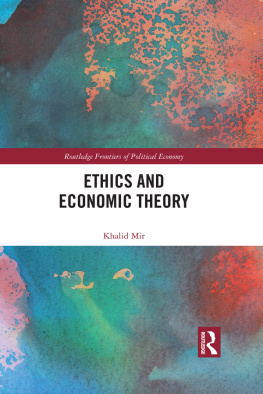A work of depth that requires contemplative reading and rereading. Bonder demonstrates great creativity in bridging ideas that are abstract and practical, religious and secular, traditional and modern.
Jewish Week
One of the best books available on the ethical challenges of living in a material world.... Fresh perspectives on the meaning of wealth, poverty, ownership, charity, competition, loans, fair exchange, tips and presents.
Body Mind Spirit
Bonder explodes the stereotypes about Jews and money and encourages Jews to examine their traditional teachings to discover ways that economic behavior and personal responsibility are intertwined.... Bonder's book is filled with penetrating insights derived from the simple recollection that, in Judaism, teachings about money have always been about more than just money.
Publishers Weekly Religion Bookline
Compelling and innovative.
Edgar M. Bronfman, President, World Jewish Congress
Bonder frees money from the taint of filthy lucre and points to its uses in the growth and enhancement of souls in the marketplace.
Zalman Schachter-Shalomi, author of From Aging to Sage-ing
ABOUT THE BOOK
This book challenges us to take a broad and ethical view of economic behavior, which includes all forms of exchange and human interaction, from how we spend our money to how we fulfill our role as responsible human beings in a global economic framework. Drawing on Jewish ethical teachings, mystical lore, and tales of the Hasidic masters, Bonder explores a wide range of subjects including competition, partnerships, contracts, loans and interest, tipping, and giving gifts.
RABBI NILTON BONDER was born in Brazil and ordained at the Jewish Theological Seminary in New York. He leads workshops on spirituality in management for such corporations as IBM, the Brazilian Oil Company, and the Federation of Industries of Sao Paulo. He is known in Brazil as the Green Rabbi for his activism in environmental causes. He also serves as president of the Institute for Religious Studies, the largest forum for civil rights activities in Latin America.
Sign up to receive news and special offers from Shambhala Publications.

Or visit us online to sign up at shambhala.com/eshambhala.
THE KABBALAH OF MONEY
Jewish Insights on Giving, Owning, and Receiving
RABBI NILTON BONDER
Translated by Adriana Kac

SHAMBHALA
Boston & London
2014
SHAMBHALA PUBLICATIONS, INC.
HORTICULTURAL HALL
300 MASSACHUSETTS AVENUE
BOSTON, MASSACHUSETTS 02115
WWW.SHAMBHALA.COM
1996 by Nilton Bonder
All rights reserved. No part of this book may be reproduced in any form or by any means, electronic or mechanical, including photocopying, recording, or by any information storage and retrieval system, without permission in writing from the publisher.
The Library of Congress catalogues the hardcover edition
of this book as follows:
Bonder, Nilton
[cabala do dinheiro. English]
The Kabbalah of Money: insights on livelihood, business,
and all forms of economic behavior / Nilton Bonder.
p. cm.
eISBN 978-0-8348-3026-4
ISBN 1-57062-214-0 (cloth: alk. paper)
ISBN 1-57062-804-1 (pbk.)
1. JudaismEconomic aspects. 2. Judaism and social problems. 3. EconomicsReligious aspectsJudaism. 4. Ethics, Jewish.
I. Title.
BM509.E27B6613 1996 96-14964
296.385644dc20 CIP

A Jewish aphorism tells us that a man shows his character in three ways: by his cup (that is, his appetite), his pocket (his relationship to money), and his anger. Here we will concern ourselves with the pocket and how much we reveal of ourselves when dealing with it. In everyones pocket, questions of survival and its boundaries come to lightquestions related to excess, ownership, and insecurity. The same tradition says: The longest path is the one that leads from the heart to the pocket. We cant get from the heart to the pocket without looking at life as a whole and all its meanings. How we relate to our pocket reveals who we are and where we stand within the immense Market of values that we call reality. This is the Market of exchanges and interactions of all kinds from which we have learned to derive the concept of economic markets. It represents the infinite quantity of small and great businesses that take place in the universe at any given moment. These businesses are made possible through the mediation of an incredible diversity of currencies. These moneys, which can be studied through the model of our ordinary, daily money, are the main focus of this book.
Jewish tradition has much to contribute to this inquiry. Jews have had their image stereotypically attached to the love of money. Theyve seen their patriarchsAbraham, Isaac, and Jacobturned into the main characters of jokes about stinginess and greed. Their greatest symbol of impurity, the pig, has been mockingly promoted to best friend in the form of a piggy bank. They have been caricatured with long noses, presumed to guide them through the gutters of our financial systems.
I will avoid making apologies, which would inevitably lead to an admission of bias on my part. But I would like to invite the objective reader who is familiar with the bypaths of this world to share a less judgmental analysis. I speak to those who recognize that over and above considerations of good and evil, human experience is distinguished by the constant adjustment of our intentions as they come into contact with reality. Our capacity to transform experience into culture and tradition allows future generations to relate to a fixed body of morals and ethics, which they can develop, criticize, and improve. This process leads us to self-knowledge of our own humanity.
In a way, Jews are indispensable to the collective memory of the West. Upon them the West projects many of its social fantasies, as well as many of civilizations sublimated and repressed experiences, which tend to manifest in those perceived as being other.
In fact, the negative characteristics projected onto Jews are often revealing of their cultural efforts towards behaviors that are the very opposite of these stereotypes. People often fantasize about the rabbi who eats pork behind the closed doors of the temple, or the priest who holds secret trysts in the confession booth, or the politician who conducts fraudulent transactions from the basement of the senate. We betray, with these thoughts, the great burden placed upon those whose task it is, at least nominally, to challenge our animal instincts and reactions. In other words, culture (which challenges us in precisely this way) creates in us a desire for its own collapse, for the unmasking of its antihuman theoretical propositions of right and wrong, construction and destruction.
Jews, as creators and promoters of what was to become the ethical heritage of the West, fell prey to a reaction against the restrictions it imposed on human behavior. They originated the fundamental law Thou shalt not kill, and yet they are charged with the great historical murder. The Jews of the Middle Agesa period of urbanization characterized by a disregard for hygienic and sanitary concernswhose traditional customs were known exactly for their hygienic content, are nevertheless depicted as filthy and rejoicing in their filth. Despite being bound by severe dietary prescriptions, they are accused of cannibalistic rituals involving Christian children. And finally, Jews are saddled with a reputation for being obsessive about money. Their God, of whom they are not permitted to make images, is assigned the shape of a dollar sign. And yet it is true that the Jews respect money; for in it they see a content which speaks of the true distance between the heart and the pocket.
Next page








